Oftentimes, great leaders take their place in history. However, this right hasn’t been given to many African American leaders, especially in Omaha, Nebraska.
One such leader single-handedly roused a generation of political activism, social consciousness, and deliberate action to improve the conditions of newly liberated Black people who settled in Omaha when it was a very young city. Throughout most of his life, he dedicated himself fighting for civil rights. This is a biography of Edwin Overall.
Early Life
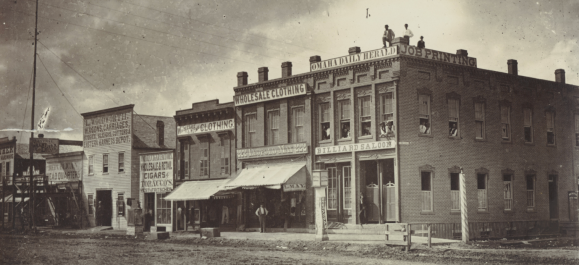
Edwin R. Overall (1835–1901) was born into slavery Charles, Missouri, on August 25, 1835. His mother was enslaved and his father was his white owner. He stayed in Missouri until 1855, when his father emancipated him.
Edwin was a community leader long before he came to Omaha in 1869. Moving to Chicago in 1856, he was a conductor on the Underground Railroad for a decade. While he lived in Chicago, in 1856 Overall became a member of the Prince Hall Masonic Fraternity North Star Lodge #1. and was elected as Junior and Senior Warden, and Master for two years, and being under the jurisdiction of Ohio, was elected Grand Junior Warden in 1865, and assisted in laying the corner stone for rebuilding of Wilberforce University, at Xenia, Ohio.
In 1859, Edwin married Margaret L. Blackburn (1833-1885) in Chicago. They had six children total, with four born in Chicago: Ida Elizabeth Overall (1860–????), Maud Electah Overall (18??–1886), Victoria Eugene Overall (1867–1918), and Florence Esther Overall Crews (1868–1916).
At the outbreak of the Civil War in 1861, he became a recruiter for the US Army 54th Regiment and the 56th Regiment, both from Massachusetts. He was also involved in organizing the Black community in Chicago during the war, participating in a leadership committee and raising awareness throughout the city. He wrote letters to the Illinois governor and more.
Overall moved to Council Bluffs in 1868, where he opened up a restaurant. The next year he moved to Omaha.
Overall a Good Career
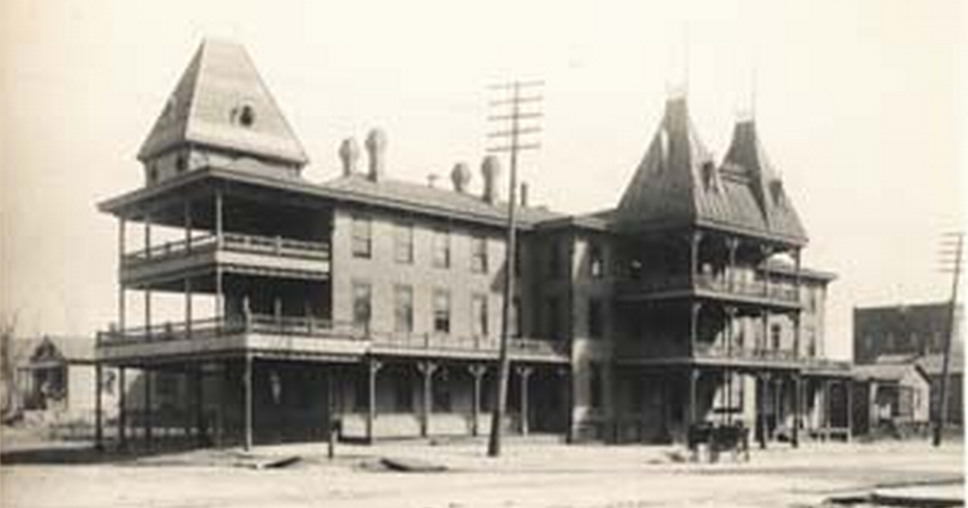
Edwin Overall and his family arrived in Omaha on May 1, 1869. He first job in the city was as steward of Cozzen’s Hotel. In October of that year, the United States Post Office at Omaha hired him as a General Delivery Clerkhe first African American employed by the federal government in Nebraska, and the first Black mail carrier in the state. He stayed in that job until 1879, and was connected to the post office for decades afterwards. Eighteen years after his death, one newspaper said Overall was, “one of the oldest and most highly respected letter carriers in the city.”
Edwin and Margaret had two more children in Omaha, their sons Norman Edwin Augustus Overall (1871–1894) and Guy Harvey Leonard Overall (1876–1929).
In 1875, Edwin Overall’s father died. Apparently, the man had a fortune left to Overall as an inheritance. With this inheritance and his business acumen, he became one of Omaha’s wealthiest citizens. He invested widely in real estate and was a director and later president of the Missouri and Nebraska Coal Mining Company. The company’s mine was sixteen miles from Plattsmouth. He was also the leader of the Timber and Homestead Colony of Nebraska, which I haven’t found more information about, yet.
Victoria and Ida were teachers. Victoria applied to become the first African American teacher in Omaha but wasn’t hired; Ida was one of the first in the 1890s.
According to a 1891 account, Overall was “known in politics and in the assemblies of the Knights of Labor as an advanced radical.” A Nebraska representative to two national labor conventions, he spoke frequently in public about labor.
Fighting Jim Crow

Within a few years, he was the leading political leader among new city’s Black population. The first notable action Overall took was the spring of 1872 when he led a group of parents to challenge the Omaha School District’s segregation policy. After legal wrangling, they succeeded in having the school closed in the fall of 1872. Black students were sent to the school nearest to their homes.
That same year, Overall was elected president of the National Convention of Colored People in St. Louis.
Led by Edwin with Cyrus D. Bell, Emanuel S. Clenlans, H. W. Coesley, and Gabriel Young, African Americans in Omaha were widely considered to be shoe-in voters for the Republican Party. However, during this era some Black leaders in Omaha pushed back on that supposition and insisted that the city’s pluralistic, non-monolithic Black community shouldn’t be party loyalists, and couldn’t be assumed to always vote liberal.
Overall was the Master of the Prince Hall Rough Ashler Lodge #74 in Omaha, which was under the jurisdiction of the Grand Lodge of Missouri. He was also District Deputy Grand Master for that Lodge, and was also a member of the Supreme Council of the Thirty-third degree, for the southern and western jurisdiction of the United States; is also Deputy Grand Inspector General of the Grand Consistory, for the State of Nebraska;
In 1876, Overall was among a group of Black men who organized the Nebraska Convention of Colored Men. Other organizers included Dr. W.H.C. Stephenson, William R. Gamble (c1850–1910), and Rev. W. H. Wilson (birth and death dates unknown). Wilson served as president of the meeting, Curry, Lewis, and J. C. Boone as vice presidents, and Cyrus Bell as secretary. The convention met to discuss lynching and to select delegates for the National Convention of Colored Men in Nashville later that year. Dr. Stephenson, Rev. Wilson, and Gamble were selected as national delegates, with Curry, John Lewis, Calvin Montgomery (birth and death dates unknown), and P. Hampton as alternates.
It was 1879 when Edwin’s daughter Ida became the first Black woman to graduate from Omaha High School, and from any high school in Nebraska.

For several years starting in 1879, a celebration of the anniversary of the ratification of the Fifteenth Amendment to the U.S. Constitution was held at the Masonic Hall, with Edwin Overall and Cyrus Bell as the main speakers. The Fifteenth Amendment to the United States Constitution prohibits the federal government and each state from denying a citizen the right to vote based on that citizen’s “race, color, or previous condition of servitude.” It was ratified on February 3, 1870. During his speech, Overall highlighted the numbers of ex-Confederate officers and supporters who were getting elected to federal offices, while Bell focused on the need for Black people to vote independently. He also emphasized that emancipation alone did not bring Black people full citizenship.
In 1880, the Nebraska State Convention of Colored Americans met and was led by Edwin Overall, Dr. Stephenson, James O. Adams, John R. Simpson, Peter Williams, and Benjamin Fulton. Both Overall and Dr. Stephenson wanted to be candidates for the Nebraska Legislature that year, but they were denied by Omaha’s Republican Party.
The first state convention of Black people ever held in Nebraska was in Omaha in 1882. A political gathering, it was part of a larger national movement of social and political events held by African Americans across the country. These gatherings led to the development of larger African American organizations, including the Colored National Labor Union and the National Association for the Advancement of Colored People. At the convention, Black community leader Dr. Stephenson was endorsed as a Republican candidate for Nebraska Legislature. A group at the convention called the Workingmen’s Central Committee endorsed Edwin Overall for the same nomination. Cyrus Bell felt that was irregular and protested that Overall was achieving his nomination by unfair methods. Overall was chosen as the Nebraska delegate to the National Convention of Colored Men, along with Dr. Stephenson, William Gamble, the Rev. W. W. H. Wilson. Other men were chosen as delegates for the same event in 1883, including Gamble.
When Edwin’s first wife Margaret died in 1885, he married Mary E. Washington (18??–1930) in Omaha around 1887. Edwin and Mary had one child together, Eulalia (Eula) Overall Britt (1882-1966). Eula was one of the first Black teachers in Omaha Public Schools.

Also in 1887, a group of prominent African American leaders formed the Omaha Colored Men’s League. Providing legal aid for African Americans unjustly charged with crime, they represented William Ferguson (1873–1890) in the murder of a Swedish immigrant in 1888. Ferguson was 15-years-old, and moved to Omaha on his own three years earlier. He was sentenced to life in prison, and died in 1890. That year, the organization was led by Dr. Ricketts, along with Edwin Overall, Silas Robbins, Richard Gamble, Vic Walker, Millard Singleton, Cyrus Bell, and others. The Omaha Colored Men’s League continued until 1900.
As usual, events across the United States continued to affect African Americans in Omaha. In 1890, the National Afro-American League was formed in Rochester, New York. Dedicated to racial solidarity and self-help, there was a chapter started immediately in Omaha. However, the national organization floundered within the next several years, and in 1898 it was renamed the National Afro-American Council and continued operating until 1907. Many of Omaha’s Black activists including George F. Franklin (1852–1901), Millard Singleton, Emanuel Clenlans, William Gamble, Alphonso Wilson and Edwin Overall were all active leaders within the city’s chapter. At the meeting, Dr. Ricketts offered a particularly damning speech condemning white supremacy in politics.
Calling for Black solidarity, a local newspaper quoted Dr. Ricketts saying,
“The use of which has been made of the Afro-American voter by all political parties has been proverbial. We have helped by our efforts to carry men into power who, when secure in the results of our efforts, have done nothing for us. I am reminded of the old colored man who went to heaven’s gate and asked for admittance. ‘Are you afoot or horseback,’ asked St. Peter. ‘I’m afoot.’ said the suppliant. ‘Then you can’t come in,’ said the doorkeeper. The Afro-American went back down the hill and met the Honorable ‘Billy’ Mahone who said he could arrange it all right. ‘You go down on your hands and knees and I’ll ride up to the door and then we’ll both go in,’ he said to the colored brother. So they came to the gate. To the question of the saint, Mahone said he was riding and not afoot. ‘Well,’ said St. Peter, ‘tie your horse outside and come in.’ Gentlemen, we have been hewers of wood for years, but we haven’t been near the fire; we have been drawers of water, but have gone thirsty. Let us be of no party but the Afro-American party.”
Dr. Matthew Ricketts in 1890
This didn’t end Black involvement in political parties by any measure though. After several attempts in the 1880s, in 1890 Edwin Overall finally gained the Republican Party nomination for the Nebraska Legislature. However, he lost the election. Omaha’s Black newspaper, The Progress, believed that if white Republicans had voted for him, Overall would have been elected. It was the newspaper’s opinion that Overall’s loss resulted from racist voting by Omaha Republicans.
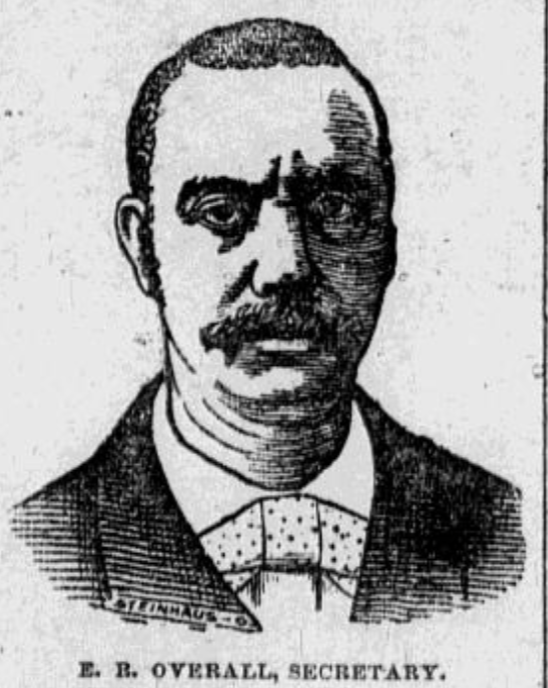
During this era, hotels in Omaha were segregated by Jim Crow practices. In 1890, the first hotel for African Americans in Omaha was opened and run by a Mr. Lewis at 10th and Capitol Streets. That same year, Edwin Overall became the first African American candidate for the Nebraska State Legislature. He lost the campaign. An African American Baptist minister named Rev. George R. Woodbey ran for Lieutenant Governor of Nebraska for the Nebraska Prohibition Party. He and his wife, Rev. Anna R. Woodbey, were both active in the anti-alcohol movement, as well as active ministers in a number of churches.
Edwin Overall ran as a Populist for the Omaha City Commission in 1893. The first African American in Omaha to run for office, he finished 18th in a field of 23 candidates running at-large for nine of 18 seats.
In 1898, Overall was appointed by the Nebraska governor to attend the National Ex-Slaves Congress in St. Joseph, Missouri. There were eleven delegates from the state, including William Gamble. Dr. Stephenson, and Rev. J.C.C. Owens.
Being Black at the Expo

Long before the 1898 Trans-Mississippi and International Exposition, there were debates over whether there should be an exhibit to represent Black people in Omaha. Edwin Overall was a leader in these conversations and regularly guided his peers towards taking action.
For instance, in 1896 Overall started a movement for Omaha to host a “National Congress of Afro-Americans” during the Expo. He was elected temporary chairman of a steering committee to plan the event, and gained support from several corners. Overcoming critics with diplomacy and joint leadership, eventually he led the community forward.
Because of Overall’s leadership, several important events for African Americans were held in the months during the Expo. For instance, the National Colored Personal Liberty League Annual Convention was held there. The group that brought it was made of Overall, Rev. Williams, and Cyrus Bell. The city’s Black press industry was involved too, hosting a meeting of the National Colored Press Association as well as a meeting of the Western Negro Press Association.
The Congress of White and Colored Americans was Overall’s greatest accomplishment for the expo though. The three-day event brought hundreds of white and Black people together to discussion racial harmony and served as a predecessor to the eventual formation of the NAACP.
The End of Overall

Edwin Overall died in July 1901. His funeral was held at St. Philip Episcopal Church and led by Rev. John Albert Williams; he was eulogized by both white and Black leaders from throughout the city. His family’s burial plot is at Prospect Hill Cemetery.
In 1973 and 1977, Fred Conley ran for the Omaha City Council in the at-large format and each time finished 18th – just as the first African American candidate, Edwin Overall, did some 70 years earlier.
Today, there are no busts show his likeness and no street names celebrate his accomplishments. There is little acknowledgment anywhere in Omaha of this dedicated, powerful, and prescient leader.
You Might Like…
- History of African American Firsts in Omaha
- History of Community Leaders in North Omaha
- History of African American Politicians in Omaha
MY ARTICLES ABOUT THE TRANS-MISSISSIPPI AND INTERNATIONAL EXPOSITION
GENERAL: Trans-Mississippi and International Exposition | Greater America Exposition | Locating the Expo | Demolishing the Expo
BUILDINGS: Administration Arch | Machinery and Electricity Building | Manufactures Building | Girls and Boys Building | Old Plantation | Sod House | Mines and Mining Building
EVENTS: Congress of White and Colored Americans
RELATED: Lost Monument | Omaha Driving Park | Kountze Park | Kountze Place
MY ARTICLES ABOUT CIVIL RIGHTS IN OMAHA
General: History of Racism | Timeline of Racism
Events: Juneteenth | Malcolm X Day | Congress of White and Colored Americans | George Smith Lynching | Will Brown Lynching | North Omaha Riots | Vivian Strong Murder | Jack Johnson Riot
Issues: African American Firsts in Omaha | Police Brutality | North Omaha African American Legislators | North Omaha Community Leaders | Segregated Schools | Segregated Hospitals | Segregated Hotels | Segregated Sports | Segregated Businesses | Segregated Churches | Redlining | African American Police | African American Firefighters | Lead Poisoning
People: Rev. Dr. John Albert Williams | Edwin Overall | Harrison J. Pinkett | Vic Walker | Joseph Carr | Rev. Russel Taylor | Dr. Craig Morris | Mildred Brown | Dr. John Singleton | Ernie Chambers | Malcolm X
Organizations: Omaha Colored Commercial Club | Omaha NAACP | Omaha Urban League | 4CL (Citizens Coordinating Committee for Civil Rights) | DePorres Club | Omaha Black Panthers | City Interracial Committee | Providence Hospital | American Legion | Elks Club | Prince Hall Masons | BANTU
Related: Black History | African American Firsts | A Time for Burning | Omaha KKK | Committee of 5,000
Elsewhere Online
- Edwin Overall article on Wikipedia
- Edwin Overall on Findagrave
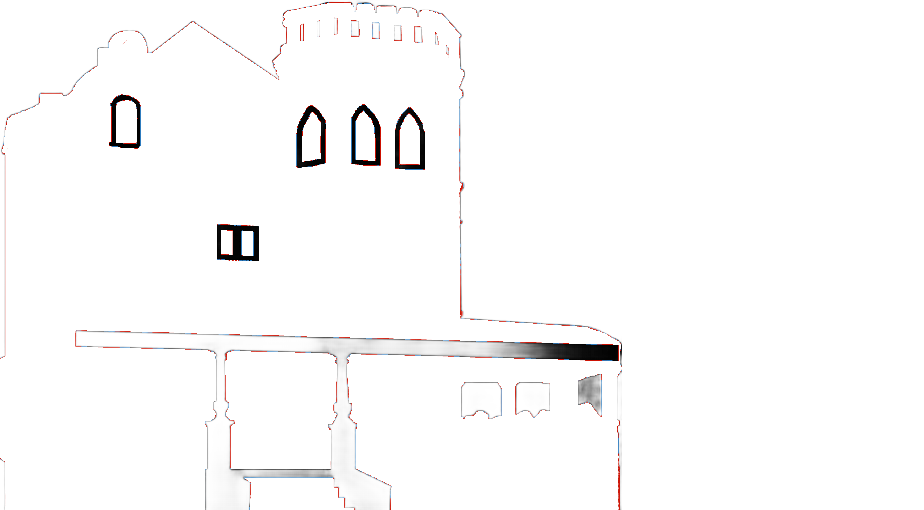

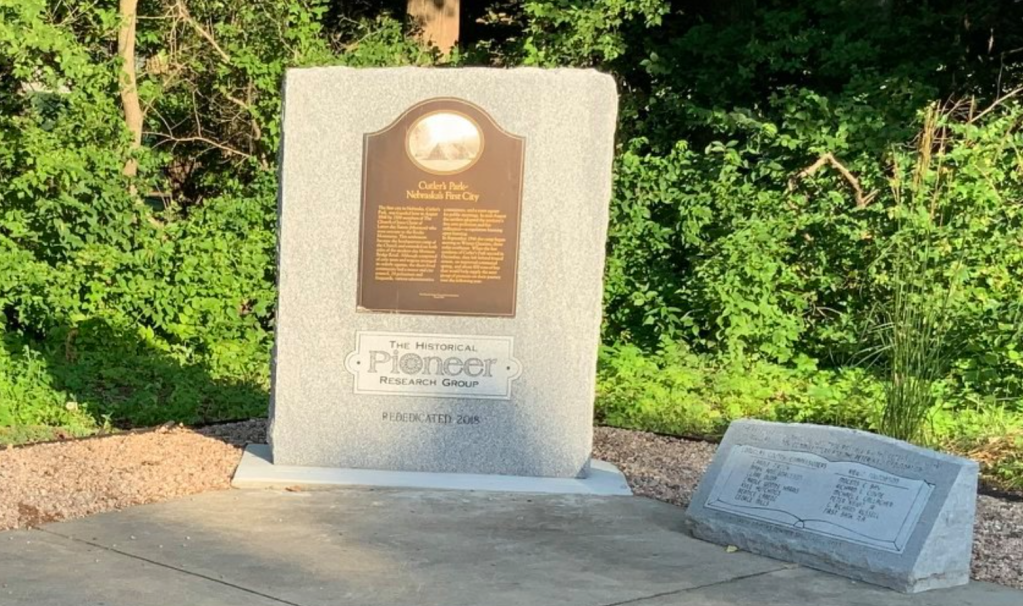
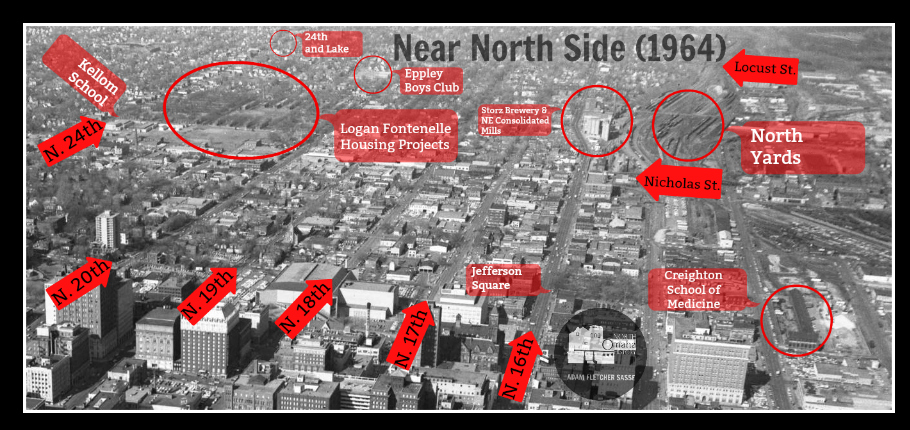

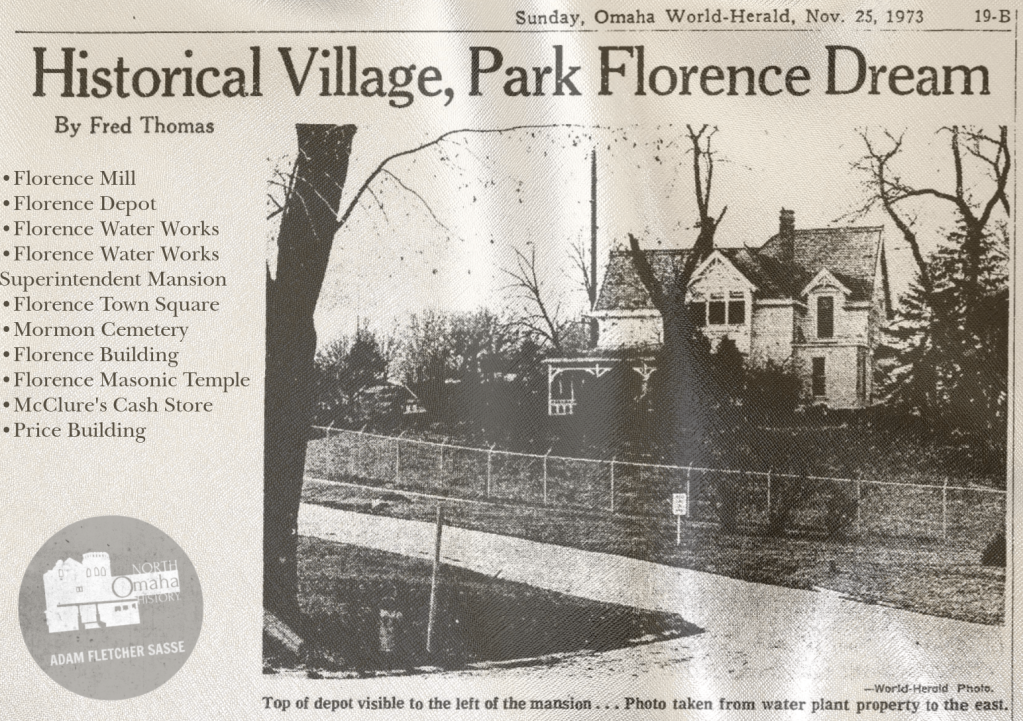
Leave a comment